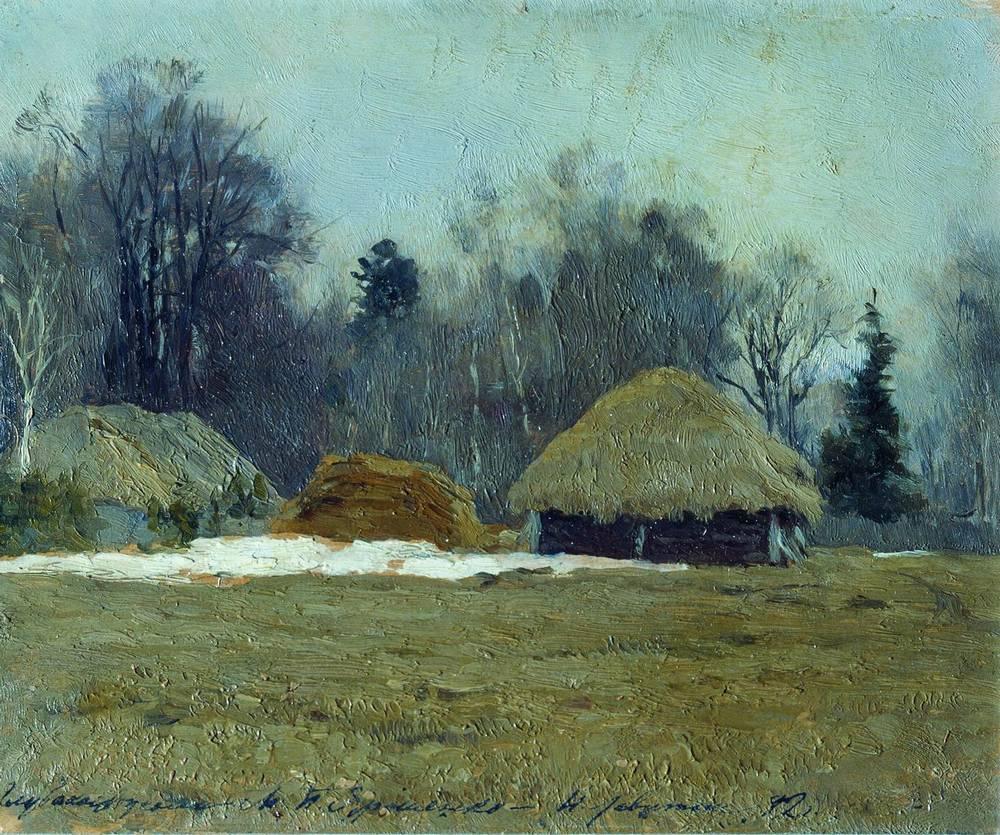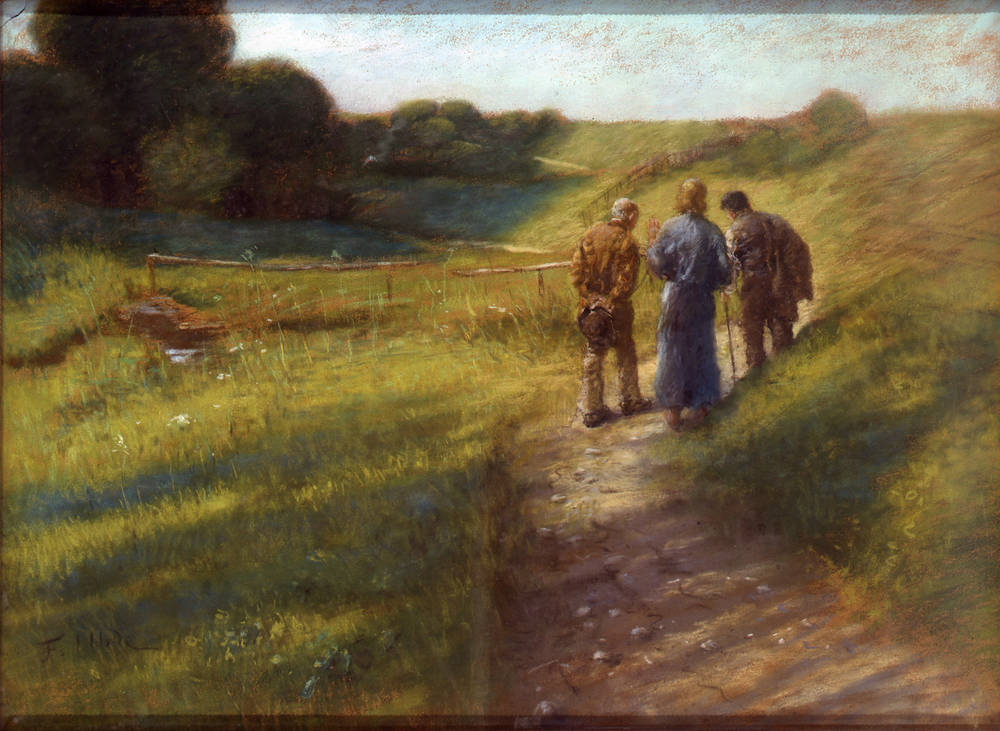Monday in the Fourth Week of Lent: Isaiah 65:17-21, John 4:43-54.
Compared to some of the well-structured parables we’ve been hearing this Lent, today’s readings are a bit vague. Perhaps “transitional” is a better way to describe them. But maybe that’s the point. We are waiting for Easter in our liturgical season and also waiting for the global pandemic of COVID-19 to be slowed and hopefully burn out in our communities. We are in a time of transition, of waiting.

Yet the tenor of the readings is hopeful, even triumphant. Through Isaiah, the Word of God speaks about the “new heavens and new earth” He will build: “I create Jerusalem to be a joy and its people to be a delight; I will rejoice in Jerusalem and exult in my people. No longer shall the sound of weeping be heard there, or the sound of crying.” Forget earth, this sounds like heaven. But He is speaking of earth, too. What else could this be but the end times in which we are living? The time after Christ, when heaven truly does come down to earth and establishes a firm foothold in the Church. Can we accept this new reality?
It does require a change in us. As He says, “The things of the past shall not be remembered or come to mind.” For the nation of Israel, this refers to both their historical struggles as well as the former covenants established by God. The New Covenant supersedes them — it does not reduce them in the slightest but intensifies God’s connection with his people. However, there is something scary in not remembering the past.
Is Isaiah talking about the abolishment of history? I do not think God suggests ahistoricity for humanity, but a new and transformed historicity. In other words, the Christ event and what it reveals about God’s fullness throughout history enables us to forget our tiny lens of human nation-building and power relationships. We now have insight into God’s saving plan for us and this presents a new way to look at everything. The earth is transformed.
This requires willing participation on our part. We have to live up to our end of the covenant and love the Lord your God with all your heart, with all your soul, with all your mind, and with all your strength. This is constant work for us to live in the light, to accept God’s agape, allow it to transform us, and then give that agape to those around us. So, we are in constant transition, sometimes living in the New Covenant, but then falling into sin. The sacraments — confession, eucharist, marriage, etc. — and the neverending liturgy are our ways to re-unite with God, to re-commit to the covenant with Him. Lent itself is a season of waiting, transition, and re-commitment.
In today’s gospel we find Christ in transition, going from Samaria to Galilee. And a royal official travels from Capernaum to Galilee to ask Jesus to return to his home with him to heal his son. Rather than travel with the man, Jesus tells him to go home where he will find that his son is healed. We are told that the man “believed” and left. Yet this is a two-day journey, and we can imagine that the man had a twinge of doubt as well as hope in his heart.
It is on the way the next day that the man encounters his slaves who share the good news that his son is recovering (starting exactly at the time he met with Jesus). With this, “he and his whole household came to believe.”
In other scenes from the gospels, we see Jesus teaching specific lessons with each healing. For example, yesterday’s parable of curing the blind man by making clay from His own saliva was a sign that He, the Christ, is the method for curing our spiritual blindness. So what do we find when we dig into this abbreviated miracle? All Jesus says is, “You may go; your son will live.”

I believe the lesson here lies in the travel and the transitions of spirit that are marked along the way. First, Jesus travels to us from “his native place” where he was not recognized as the Messiah. This was a historical event for the man as he left Nazareth for Galilee, but also an event within salvation history as God travels from the nation of Israel where He is rejected to the rest of the world. Next, the man from Capernaum travels to him, just as we are to travel to him, to leave the comfort of our homes, especially urgent in times of distress.
Here, at the encounter with Christ, the man petitions him in earnest, with belief in his power to save. God comforts him, pours out His mercy upon the man. Thus refreshed in spirit thanks to the life-giving water, the man returns home, renewed in faith. This is the model for our own encounter with Christ in the sacraments, in the Church, in our hearts. He is the hope and our wellspring.
And in looking at the overall arc of the gospel, most of the time is spent in transition, in travel. Is this not the case for us, too? Our faith shows us the broad strokes in this painting: that we are in transition between this world and the next where we shall be united with God face-to-face. As we’ve noted before, the earliest Christians referred to themselves as followers “of the Way” (cf. Acts 9:1-2), letting this great eschatological fact define them.
On the micro level, too, we are constantly traveling, in transition. We get to experience the Mass infrequently and ecstatic moments of union with God even less frequently. What happens outside of those moments? Well, we call it life. It’s hard to keep up a sustained outpouring of God’s love and will. We are members of the Church in part to support us in that effort to maintain our spiritual focus. But let’s be honest about the reality of this life: it exists largely in transition between moments of sin, fear, and isolation and moments of peace within God’s light.
How are we living this life? What do we look like as we walk in this life of transition? The answer and expectation given to us is frustratingly simple; Jesus tells us, “I am the way, and the truth, and the life” (Jn 14:6). We must happily embrace what the earliest Christians did and be followers “of the Way” because the travel, the path, the moments of transition, are in union with Christ Himself. He resided in our flesh, He knows us intimately, He is here with us. The great Life-Bringer, the source of Truth and Wisdom traveled just like us and with his Resurrection, lives spiritually, personally, mystically with each of us while we walk in this life of transition. We are not alone here. As baptized Christians, we are surrounded by and infused with the Spirit of the Lord. This must make our journey joyful and hopeful, despite all of its hardships and pain.
This is the “new earth” of which Isaiah speaks. The Lord has promised us salvation and a place in his house. This is why He says, “No longer shall the sound of weeping be heard there, or the sound of crying.” Let us live in the promise of the Kingdom, knowing that every step we take On the Way is one step closer to Him.

Mike, recall the rest of Christ’s message to Nicodemus First love the Lord your God with your whole heart soul, mind, and strength And love your neighbor as yourself. I believe we must remember that Jesus said He came to serve, not to be served. We are our brothers keepers and must love and serve them as Jesus did.
Totally agree, as I write in paragraph 5: “This is constant work for us to live in the light, to accept God’s agape, allow it to transform us, and then give that agape to those around us.” While we must love and serve our brothers and sisters, Christ is clear that this service comes from the love of God that has transformed us, not from an obligation or social duty per se. The duty is to God, and his will is the service. Our faith is much more than social work! I think there is a problem in many Christian churches and communities today that their work has simply become service and good deeds without the fundamental obeisance and reliance on God’s mercy, which is then passed to others. This has led to a drive to “fix the world’s problems,” that is, make the earth into “the” kingdom, while instead, we should hear Christ’s message loud and clear that the real Kingdom is a spiritual one.